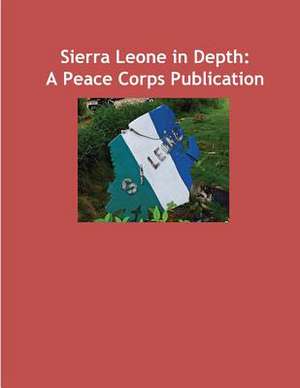Sierra Leone in Depth
Autor Peace Corpsen Limba Engleză Paperback
Preț: 84.18 lei
Nou
Puncte Express: 126
Preț estimativ în valută:
16.11€ • 16.86$ • 13.33£
16.11€ • 16.86$ • 13.33£
Carte disponibilă
Livrare economică 15-29 martie
Preluare comenzi: 021 569.72.76
Specificații
ISBN-13: 9781502415592
ISBN-10: 1502415593
Pagini: 60
Dimensiuni: 216 x 279 x 3 mm
Greutate: 0.16 kg
Editura: CREATESPACE
ISBN-10: 1502415593
Pagini: 60
Dimensiuni: 216 x 279 x 3 mm
Greutate: 0.16 kg
Editura: CREATESPACE
